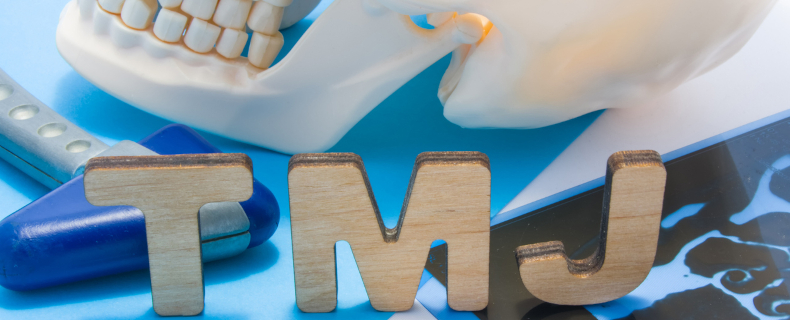
San Francisco and Marin CA
Perhaps you’ve heard of “TMJ” but aren’t sure exactly what it stands for. TMJ is the abbreviation for the temporomandibular joints. They join muscles and ligaments in the jaw area that work together to help you open and close your mouth. The temporomandibular joints serve as the sliding hinges, connecting your skull to your jaw.
TMJ disorder — abbreviated TMD — happens when the TMJs become inflamed, misaligned or stressed due to factors, such as:
- Teeth grinding (called bruxism)
- Jaw injuries
- Misaligned bite
- Arthritis
While many people attribute their discomfort or pain to issues like stress or poor sleep, TMD can be the culprit behind chronic headaches and other pain in the head, neck, jaw and even deep in the ears. Let’s jump into today’s blog with our neuromuscular dentist in San Francisco as we explore the relationship between TMD and chronic pain.
What are the symptoms of TMD?
Common symptoms of TMJ disorder include:
- Persistent headaches or migraines
- Jaw pain or tenderness
- Clicking, popping or grinding noises when opening and closing the mouth
- Difficulty chewing or biting
- Ear pain or ringing in the ears (tinnitus)
- Neck and shoulder pain
- Facial swelling
How can TMD cause chronic pain?
Your TMJs are an important and necessary part of the face and head for speaking and chewing. When they’re out of balance, the surrounding muscles become overworked, leading to chronic tension and pain that radiates throughout the face, head and neck. This often includes migraines, earaches and jaw stiffness.
At our Marin dental office, we don’t just address the symptoms of TMD — we focus on the root cause of your pain by ensuring your jaw, muscles and teeth are working together in harmony.
How can a dentist help?
At our Bay Area dental practice, we can diagnose the root cause of your jaw misalignment and provide personalized treatment to relieve pain and restore proper function. Using advanced technology like digital imaging and bite analysis, we assess how your jaw, muscles and teeth work together.
Our recommended treatment plan may include:
Oral appliance therapy
We design and create a custom oral appliance — similar to a nightguard — for you to wear at night, reducing pressure on the jaw.
Bite realignment therapy
This therapy focuses on addressing bite misalignment, or how the upper and lower teeth come together. It may involve orthodontics (traditional braces or Invisalign clear aligners), custom oral appliances, dental restorations (such as crowns or bridges) or adjusting the biting surfaces of teeth to create a balanced, comfortable bite. A properly aligned jaw will reduce strain on the TMJs and the network of muscles and ligaments around them, alleviating pain and improving overall jaw function.
Muscle relaxation techniques
Muscle relaxation techniques for TMD relief focus on reducing tension in the jaw, face, neck and shoulders. Techniques can range from jaw stretches and exercises to massage therapy, hot and cold therapy and progressive muscle relaxation.
Myofunctional therapy
Myofunctional therapy helps address improper muscle function in the tongue, jaw and facial muscles. Like physical therapy for the mouth, it uses exercises to strengthen and retrain the affected muscles. This promotes proper tongue posture, breathing and swallowing patterns.
TMJ pain relief in the Bay Area
If you’ve been struggling with unexplained headaches, jaw pain or discomfort, don’t ignore it. We can help relieve your TMJ pain. Call Glen Park Dental at (415) 799-3900 or reach out to us online to schedule a consultation today.


